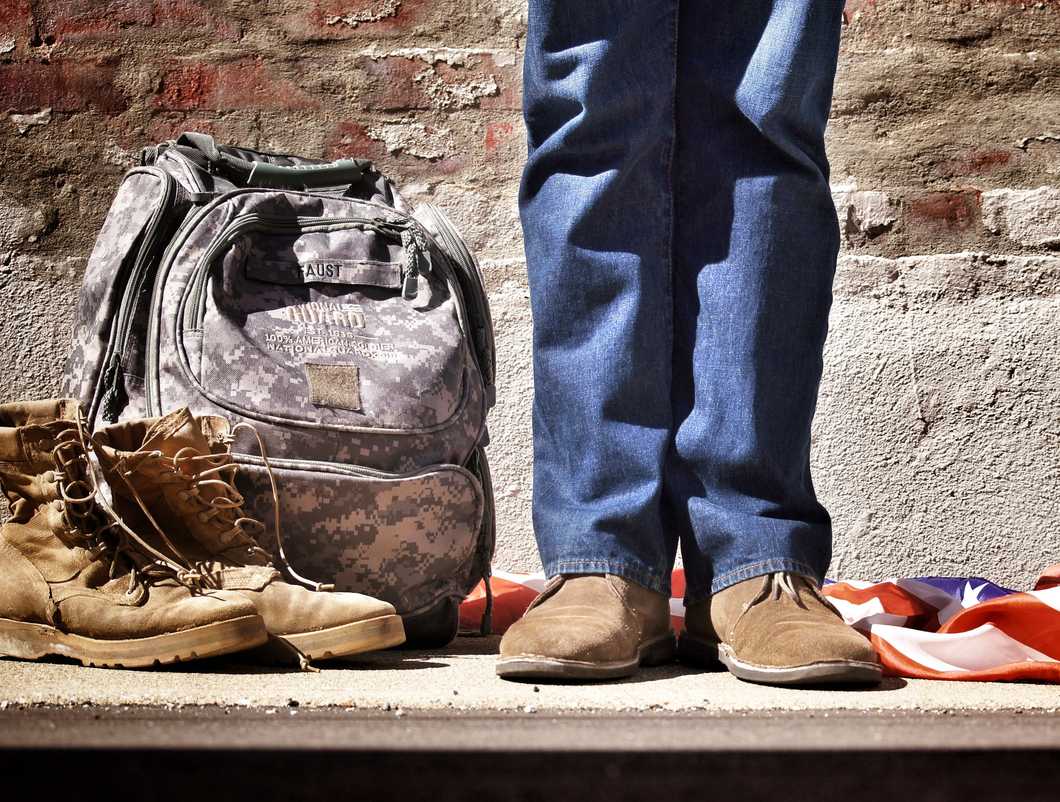Suicide is a public health issue that affects all Americans, with veterans among higher risk. In 2019, veterans accounted for 13.5% of all deaths by suicide among U.S. adults and constituted 7.9% of the U.S. adult population.
September is National Suicide Prevention Awareness Month, and mental health resources from the VA and other organizations are available to support veterans, service members and their families in need.
Here are three ways friends and family can support veterans in need of help.
Contact the VA Crisis Line.
A report found that those receiving care from the VA had a 16% decrease in suicide.
The crisis line connects veteran and their families and friends with qualified VA respondents 24 hours a day, 7 days a week and 365 days a year.
1. Call toll-free at 1(800) 273-8255
2. Text the number 838255
3. Chat online at veterancrisisline.net/chat
Download suicide prevention materials.
BeThereforVeterans.com includes resources for making a difference and how to spread awareness, VeteransCrisisLine.net/support/shareablematerials includes other educational materials.
Make the Connection.
MakeTheConnect.net is an online resource that connects veterans, their friends and family members and other supporters with information and offers solutions to issues affecting their lives.
Some suicide signs unique to veterans:
Watching for signs of concerning behavior can help you and your loved ones get help!
- Calling old friends, particularly military friends, to say goodbye
- Cleaning a weapon that they may have as a souvenir
- Visits to graveyards
- Obsessed with news coverage of the war, the military channel
- Wearing their uniform or part of their uniform, boots, etc.
- Talking about how honorable it is to be a soldier
- Sleeping more
- Standing guard of the house, perhaps while everyone is asleep staying up to "watch over" the house, obsessively locking doors, windows
- If they are on medication, stopping medication and/or hording medication
- Hording alcohol -- not necessarily hard alcohol, could be wine
- Spending spree, buying gifts for family members and friends "to remember by"
- Defensive speech "you wouldn't understand," etc.
- Stop making eye contact or speaking with others.
- Rage or anger
If you notice any signs of concerning behavior here are some things you can do:
• Start a conversation: Mention the signs that prompted you to talk to them. Stay calm and let the person know you want to help them. Don't leave the person alone.
• Listen, express concern and reassure the individual: Let the person know you care and that you take the situation seriously. Letting the person know you care will go a long way in establishing a support system.
• Create a safety plan: Ask the person if they have access to anything that could harm them and call for help if you feel the situation is dangerous.
• Get the individual help: Provide resources for the individual. Use any of the resources in the beginning of this article. If you feel the situation is severe, take the individual to the closest emergency room or call for help.
Much has been done in the years following an increasing suicide problem among the veteran population. One of the most essential and important prevention efforts remains connection — connections to loved ones and friends. Never be afraid to reach out for help!



















